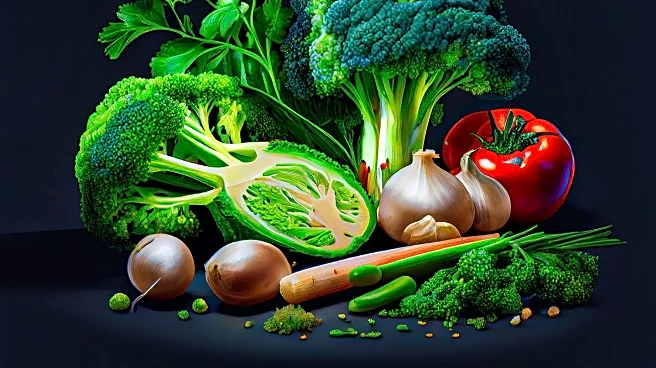What is the story about?
What's Happening?
Recent discussions have emerged around the idea that sudden food cravings might serve as early indicators of cancer. However, experts clarify that while cancer can affect appetite and taste, there is no solid evidence supporting cravings as reliable diagnostic tools. Clinical observations have noted changes in taste and appetite among cancer patients, but these are not definitive predictors of the disease. Instead, established warning signs such as unexplained weight loss, unusual bleeding, and changes in bowel habits are more effective in early cancer detection. The narrative that cravings can indicate cancer risks oversimplifies the complex relationship between diet and disease.
Why It's Important?
The misconception that cravings can signal cancer risks may lead individuals to overlook more reliable symptoms and screening methods. This could result in delayed diagnosis and treatment, potentially worsening health outcomes. Furthermore, the belief that one can 'starve' a tumor by eliminating certain nutrients can lead to dangerous dietary restrictions, undermining recovery efforts. Emphasizing balanced nutrition and evidence-based screening is crucial for maintaining health and effectively managing cancer risks. Understanding the limitations of cravings as diagnostic tools can prevent harmful behaviors and promote informed health decisions.
What's Next?
Healthcare professionals are likely to continue advocating for awareness of established cancer warning signs and the importance of regular screenings. Public health campaigns may focus on educating individuals about the risks of relying on anecdotal evidence for serious health conditions. Medical research will likely further explore the relationship between diet, appetite changes, and cancer, aiming to provide clearer guidelines for early detection and prevention. Patients are encouraged to consult healthcare providers for any persistent changes in appetite or taste, ensuring proper diagnosis and treatment.
Beyond the Headlines
The broader implications of this discussion highlight the need for critical evaluation of health information and the dangers of oversimplification in medical narratives. The cultural fascination with 'magic clues' in health can lead to misinformation and anxiety, emphasizing the importance of scientific literacy and skepticism. This situation underscores the ethical responsibility of media and health professionals to provide accurate, evidence-based information to the public.















